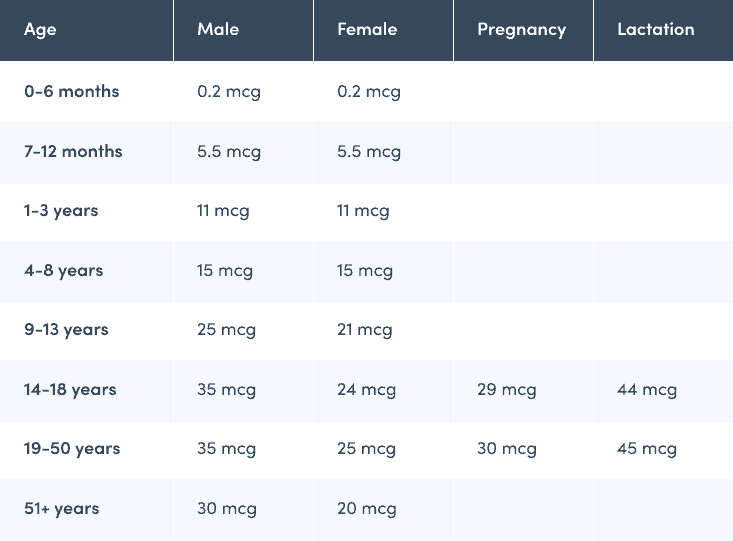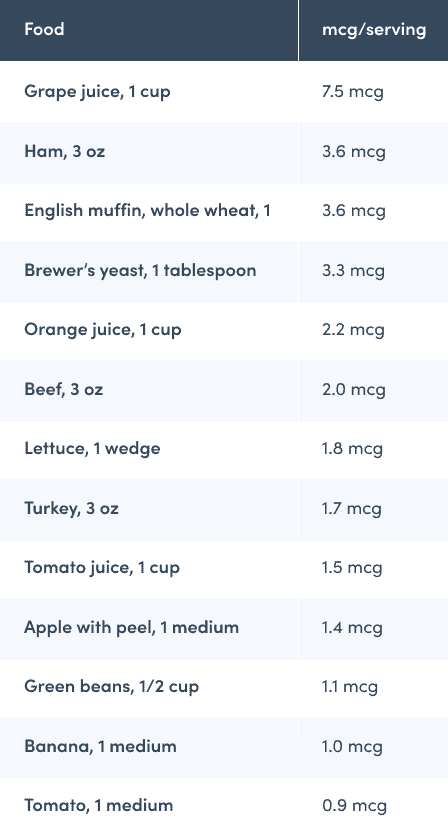
Chromium supplementation may help improve fasting blood glucose levels in patients with type 2 diabetes.
What is chromium?
Trivalent chromium is a trace element obtained from the diet and dietary supplements. It plays a key role in helping the body achieve glucose homeostasis. Research shows that chromium can improve insulin sensitivity via several mechanisms including: (2)- Activating cellular energy
- Augmenting the insulin signaling pathway
- Reducing oxidative stress and inflammation
- Up-regulating cellular glucose uptake
Chromium benefits
There is a growing amount of scientific evidence that suggests chromium supplementation can help improve glucose metabolism and insulin sensitivity, particularly in people with diabetes. (1) Low blood levels of chromium have been associated with hyperglycemia, hypertension, insulin resistance, and elevated inflammatory markers. (7) A randomized clinical trial also demonstrated that chromium was able to better manage blood glucose in patients with poorly managed type 2 diabetes compared to placebo. (8) This is consistent with other research demonstrating that chromium lowers fasting blood glucose in patients with type 2 diabetes. (11) Because chromium can help control glucose levels and reduce the risk of insulin resistance, it can also help with weight loss.Weight loss
A meta-analysis of 21 different trials published in 2019 consistently found that the participants who supplemented with chromium lost significantly more weight compared to placebo. (9) Another randomized placebo-controlled trial involving diabetes patients found that the chromium group experienced better blood sugar control as well as weight loss, especially in the abdominal area. (4) Specifically, chromium has also been shown to help people lose fat while maintaining lean body mass, which is important to sustainable weight loss and long-term optimal health. (10)Sources of chromium
Very little chromium is needed to meet the government recommended adequate intakes (AIs), which are outlined in the following table. (5)
For most people, getting the chromium AIs from the diet is pretty easy.
Chromium foods
Foods high in sugar and most dairy products are typically low in chromium. The following table outlines various dietary sources of chromium and the amounts of this nutrient per serving. (5)
For individuals with increased chromium needs or special health considerations, dietary supplements containing chromium are available.
Chromium supplement
Many multivitamin/mineral supplements contain 35 to 120 mcg of chromium, and single ingredient chromium supplements typically provide between 200 to 1,000 mcg of chromium per serving. (5) There are many different forms of chromium that contain different amounts of the chromium element. The two most commonly found forms of chromium in the dietary supplement industry are chromium picolinate (chromium bound to picolinic acid) and chromium polynicotinate (chromium bound to niacin). The scientific literature features chromium picolinate more frequently because it is considered a stable highly bioavailable form of chromium. (3)The bottom line
Trivalent chromium is an essential trace mineral found in many foods. When extra chromium is needed to help manage glucose levels or lose weight, dietary supplements are available. If you are a patient and would like to utilize chromium to help control blood sugar levels, consider working with an integrative practitioner who can give you extra guidance.- Cefalu, W. T., & Hu, F. B. (2004). Role of chromium in human health and diabetes. Diabetes Care, 27(11), 2741-2751.
- Hua, Y., Clark, S., Ren, J., & Sreejayan, N. (2012). Molecular mechanisms of chromium in alleviating insulin resistance. J Nutr Biochem, 23(4), 313-319.
- 14 Hummel, M., Standl, E., & Schnell, O. (2007). Chromium in metabolic and cardiovascular disease. Horm Metab Res, 39(10), 743-51.
- Martin, J., Wang, Z. Q., Zhang, X. H., Wachtel, D., Volaufova, J., Matthews, D. E., & Cefalu, W. T. (2006) Chromium picolinate supplementation attenuates body weight gain and increases insulin sensitivity in subjects with type 2 diabetes. Diabetes Care, 29(8), 1826-1832.
- National Institutes of Health Office of Dietary Supplements. (2021, March 29) Chromium Fact Sheet for Health Professionals. https://ods.od.nih.gov/factsheets/Chromium-HealthProfessional/
- National Institutes of Health National Library of Medicine. (2021, April). Compound Summary Chromium Oxide. https://pubchem.ncbi.nlm.nih.gov/compound/Chromium-oxide#section=Use-and-Manufacturing
- Ngala, R. A., Awe, M. A, & Nsiah, P. (2018). The effects of plasma chromium on lipid profile metabolism and cardiovascular risk in type 2 diabetes mellitus. A case-control study. PLoS ONE, 13(7).
- Paiva, A. N., de Lima, J. G., de Medeiros, A., Figueiredo, H., de Andrade, R. L., Ururahy, M., Rezende, A. A., Brandao-Neto, J., & Almeida, M. (2015). Beneficial effects of oral chromium picolinate supplementation on glycemic control in patients with type 2 diabetes: a randomized clinical study. Journal of Trace Elements in Medicine and Biology, 32, 66-72.
- Tsang, C., Tahhizadeh, M., Aghabagheri, E., Asemi, Z., & Jafarnejad, S. (2019). A meta-analysis of the effect of chromium supplementation on anthropometric indices of subjects with overweight or obesity. Clin Obes, 9(4). https://pubmed.ncbi.nlm.nih.gov/31115179/
- Willoughby, D., Hewlings, S., & Kalman, D. (2018). Body composition changes in weight loss: strategies and supplementation for maintaining lean body mass, a brief review. Nutrients,10(12), 1876.
- Yin, R. V., & Phung, O. J. (2015). Effect of chromium supplementation on hemoglobin and fasting plasma glucose in patients with diabetes mellitus. Nutrition Journal, 14.





